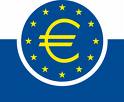Economic Crisis in Euroland: Deal to Bail out Spanish, Italian banks

The two-day European Union summit concluded Thursday with an agreement, reached after 14 hours of acrimonious talks, to provide short-term relief to besieged Spanish and Italian banks by allowing the EU bailout fund to directly aid euro zone banks. Previously, the rules governing the 500 billion-euro European Stability Mechanism (ESM), slated to come on line next month, restricted EU lending to national governments.
With the banking systems of Spain and Italy, the fourth and third largest economies using the common European currency, under increasing pressure from the financial markets and credit rating agencies, and interest rates on the two nations’ government bonds climbing to unsustainable levels, the government heads of Spain, Italy and France, backed by Washington and the International Monetary Fund, were insistent on the need for immediate measures to shore up the banks. There was no time, they argued, for the protracted negotiations and bureaucratic delays involved in official state bailouts, such as those carried out in Greece, Ireland and Portugal.
Going into the summit, Germany had reiterated its resistance to any such short-term measures until agreement had first been reached on a new political structure for the euro zone, in which national governments would subordinate their budgetary and taxing powers to an overarching authority in Brussels, tasked with policing euro zone member-states to enforce strict limits on budget deficits and national debts.
In practice, Germany, as the strongest economy and biggest donor to regional bailout funds, would dominate the new “fiscal and political union,” and behind Germany the major international banks would exert their influence more directly than ever.
German Chancellor Angela Merkel had also repeated her opposition to calls from French President Francois Hollande and his southern European allies for euro bonds or other measures to spread debt liabilities across the euro zone, and had roundly denounced before the German parliament a proposal submitted to the summit by European Council President Herman Van Rompuy to move toward euro bonds along with a banking union and centralized fiscal authority.
According to reports, however, Spanish Prime Minister Mariano Rajoy and Italian Prime Minister Mario Monti threatened to block a previously agreed 120 billion-euro “growth pact” and precipitate an open split at the summit unless Merkel backed down and agreed to allow the ESM to directly bail out euro zone banks. Everyone involved was well aware that such an outcome risked triggering a financial panic that would impact not only Spain and Italy, but the whole of Europe and the rest of the world. The continued existence of the euro itself would likely be thrown into doubt.
In the event, the plan announced by the summit conditioned the triggering of direct ESM bailouts of banks to agreement on a joint bank supervisor for the euro zone to replace the existing network of national regulators. The government heads pledged to reach such an agreement by the end of the year.
In a further move to appease the financial markets, the EU leaders dropped a requirement giving the European rescue fund preference over private holders of Spanish debt in the event of a default.
Following the meeting, Merkel insisted that her agreement on EU bank bailouts came with conditions. Both she and European Central Bank President Mario Draghi warned Friday that the new flexibility in the EU rescue fund should not be seen as a blank check. Draghi said access to funds would still come with “strict conditionality.”
These are code words for more brutal austerity measures—budget cuts, layoffs, reductions in wages and pensions—directed against the working class, along with so-called “structural reforms,” meaning the gutting of job protections and corporate regulations, and the wholesale privatization of state-controlled entities.
The agreement announced at the summit excluded any longer-term policies to address the underlying crisis of the euro currency and the EU. The plan submitted by Van Rompuy was evidently not even discussed. It was announced that this proposal would be taken up at the next EU summit, scheduled for October.
The statement from the summit was devoid of specifics. There was no explanation of how a 500 billion-euro rescue fund could finance the bailout of Europe’s troubled banks, with combined assets in the trillions, and also serve as a “firewall” against the spread of state bankruptcy from Greece to the central economies of Europe.
Stock and bond markets in Europe and around the world reacted to the summit announcement with relief, sending prices up sharply on Friday. Interest rates in Spain and Italy declined and the euro rose on the currency markets. However, there is no reason to believe that this bounce will last any longer than those that followed the agreement to pump 100 billion euros into Spain’s banks three weeks ago and the victory of the conservative New Democracy in the Greek election a week later.
The most significant political aspect of the growing tensions within the EU is the open split between Germany and France. Political commentators agreed that the summit, the nineteenth such meeting to be held since 2010, was the most acrimonious in recent memory.
The Guardian concluded its report by stating, “… from the remarks of German officials [it was clear] there was no meeting of minds; Paris and Berlin were seriously split at a summit for the first time in the crisis.”
On the same day that Merkel was obliged to make concessions in Brussels, her finance minister, Wolfgang Schäuble, told the Wall Street Journal that Germany was adamantly opposed to any increase in its funding of the ESM.

